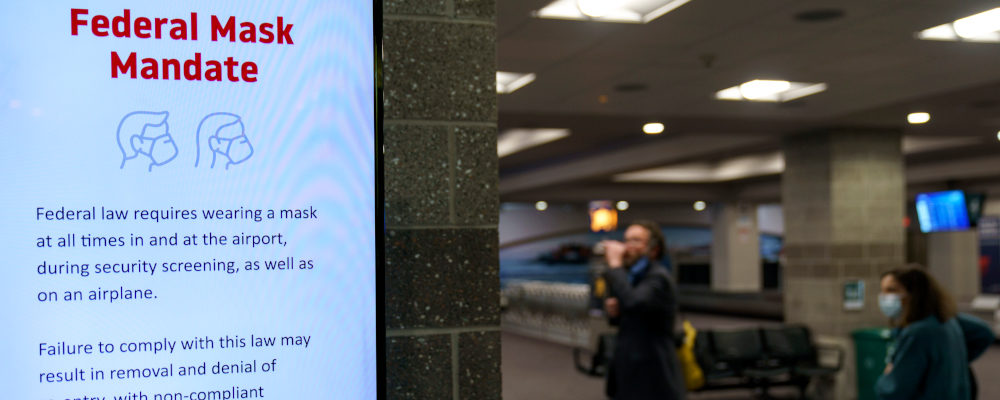“As [prime minister], I will let science dictate mandates, not arbitrary political whims,” tweeted Jean Charest in response to Ottawa’s announcement about dropping federal vaccine mandates.1Ottawa announces suspension of vaccine mandates for domestic travel, federal employees https://www.cbc.ca/news/politics/government-end-vax-mandates-1.6487585 It was a familiar refrain, the practically mandatory invocation by a politician of “following the science” as the justification for any change in public health policy, whether dropping restrictions or reinstating them, cutting isolation periods, or defending random testing at airports.
But does anyone believe it?
In practice, it is rarely a change in “the science” that motivates a change in policy. Oftentimes, it seems to be a change in what is politically expedient that does so.
Politicians have been all-too-happy to embrace the rhetorical dodge of “following the science”. By pinning the responsibility for their decisions on “the science”, they avoid having to explain the true reasoning, which might open them up to criticism and debate. It is easier to present a policy as the only option, resulting from the unassailable authority of science instead of the sum of numerous subjective considerations, each one a new opening for attack.
However, this political game is not without consequences.
Sign up for FREE and receive The Hub’s weekly email newsletter.
You’ll get our weekly newsletter featuring The Hub’s thought-provoking insights and analysis of Canadian policy issues and in-depth interviews with the world’s sharpest minds and thinkers.
First, it tarnishes the credibility of scientific evidence as an input into the political process. It is no secret that many Canadians have succumbed to misinformation during this pandemic. For example, a recent survey by Abacus Data reveals that the belief in a mass cover-up of coronavirus vaccine deaths is disturbingly common.2COVID Conspiracy Beliefs Embraced by Millions https://abacusdata.ca/conspiracy-theories-canada-3/ What is underappreciated is the role of politicians’ careless use of language in fuelling this erosion of trust.
Reversals on policies ranging from mask use, vaccine mandates, and school closures have all received the same content-free justification of “following the science”. By treating “science” as a set of received wisdom with ultimate decision-making authority rather than as a method for gathering and interpreting evidence, our leaders undermine faith in the scientific process and the public institutions that are supposed to employ it. The dynamic, uncertain, chronically skeptical nature of science is a feature, not a bug. But when “science” is used by politicians as a shield against inquiry rather than an invitation to it, the pursuit of knowledge is reduced to a recitation of presently acceptable facts.
Second, it masks the true decision-making process. In reality, “science” cannot dictate policy, because science cannot weigh the value of particular freedoms against specific risks, any more than it can tell you how to feel about a sunset. Policy is about making trade-offs, based on a set of values and goals, in the light of evidence.
Unfortunately, the nature of these trade-offs has been frustratingly opaque throughout the pandemic. This has also made policies more difficult to revise. Consider the case of border closures in March 2020, which were considered unthinkable3Justin Trudeau won’t close the border. At least for now. Here’s why https://www.thestar.com/politics/federal/2020/03/13/justin-trudeau-wont-close-the-border-at-least-for-now.html until days later when they were considered essential. More recently, the same arbitrary-feeling decision-making was employed regarding random testing at airports and federal vaccine mandates. Transparency regarding the evidence used to inform decisions, as well as the goals being pursued and the trade-offs being considered, would make it easier to periodically review and adapt these policies so that changes feel less haphazard.
Returning to the motivating example of federal vaccine mandates: what was their purpose? There are two main possibilities, both concerning reducing the externalities caused by infection but to a different degree. First, to reduce the probability of person-to-person transmission, the probability that one person directly infects another. Second, to lower the probability of severe outcomes from infection, reducing hospitalizations and thus overall burden on the health-care system. The latter argument is broader than the first but raises uncomfortable questions about what else could be “mandated” to reduce the pressure on our shared health-care resources. In either case, these goals must be weighed against the restrictions on individual liberties that they impose.
Evidence has accumulated, particularly since the widespread emergence of Omicron, of the diminishing utility of mandates (especially with only two doses) in achieving the first goal (and to a lesser degree, the second goal). But this evidence has been clear for some time. Without a clearly articulated vision, we are left to wonder: what changed to trigger the lifting of the mandates? Was it the science, or something else?
“Follow the science” is a slogan, not a strategy. Worse, it has been used as a fig leaf to cover for political expediency and partisan jockeying. The biggest loser in this charade is the public. Trust is the currency of public health and transparency is a critical part of building and maintaining this fragile commodity. Transparency means being clear not only about the evidence informing our policies but the values and goals motivating them. Appealing to some rarefied version of “the science” can only harm the effort to rebuild trust in our institutions.




